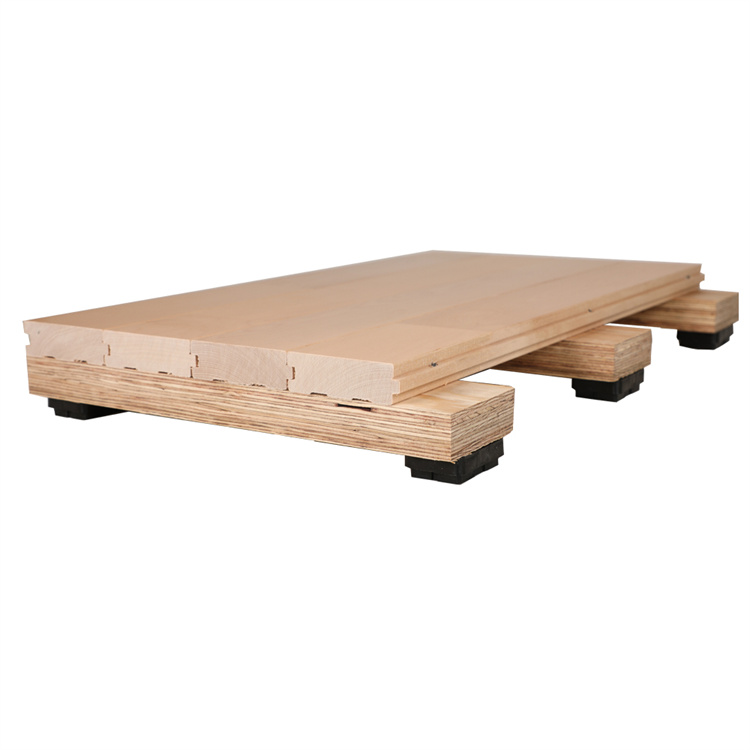
2025-07-08 14:23 Clicks:138
When it comes to basketball court flooring, hard maple hardwood is universally regarded as the best choice—especially at professional, collegiate, and training levels. Here's why, based on NBfloor expertise and industry standards:
Unmatched playability: Provides consistent ball bounce, excellent traction, and reliable shock absorption—essential for athlete safety and game integrity .
Professional standard: Approved for NBA, NCAA, FIBA, ISO, and European competitions .

Longevity: A quality maple court lasts 20–30+ years and can be refinished every few years .
Lower lifecycle costs: Wood floors are repairable—only surface layers are refinished, unlike synthetic floors which require full replacement.
Price range: $8–15 per sq ft installed for maple, including high-quality understructure.
Upkeep: Annual screening and recoating, plus refinishing every few years, are recommended .
Climate control: Requires 30–50% indoor humidity to maintain stability.
| Option | Best For | Trade-offs |
|---|---|---|
| Polyurethane (PU) | Community centers, budget gyms | Good shock absorption, but less true bounce than wood |
| Modular plastic tiles | Outdoor, temporary/multi-use courts | Portable and weather-proof, but inferior bounce |
| Rubber floors | Weight rooms, multi-sport environments | Great cushioning; low bounce and surface durability |
Certified performance: NBfloor’s maple courts meet FIBA requirements for bounce and shock absorption .
Superior bounce & athlete safety: Dense grain ensures consistent rebound and firm footing.
Long-term economic value: Despite higher initial costs, maple’s replaceable finish makes it cost-effective over time.
Aesthetic advantage: Glossy, elegant appearance fits high-end venues and broadcast standards .
For high-performance indoor basketball environments—like gyms, pro events, or tournament venues—maple hardwood is the gold standard. It's the only surface that meets all the critical criteria: elite playability, durability, safety, and professional appearance.
If you’re open to more affordable or flexible options—especially for outdoor, multipurpose, or budget-conscious projects—synthetics like PU or modular tiles offer acceptable performance with easier installation and upkeep.